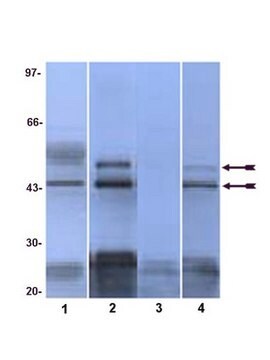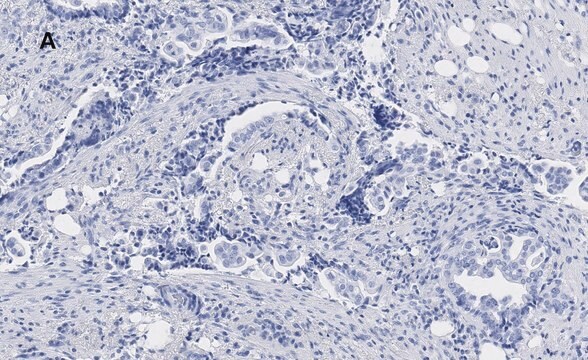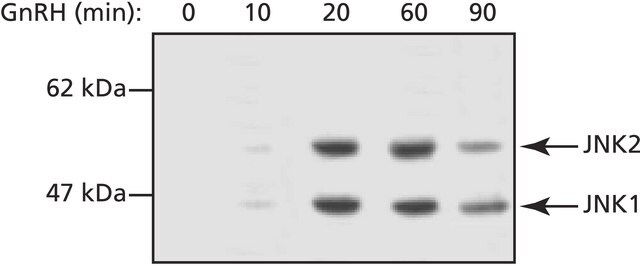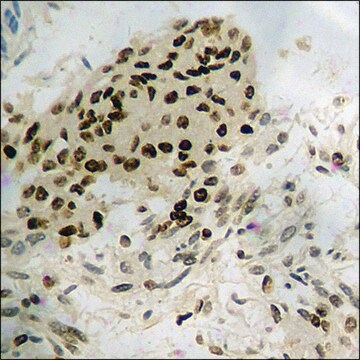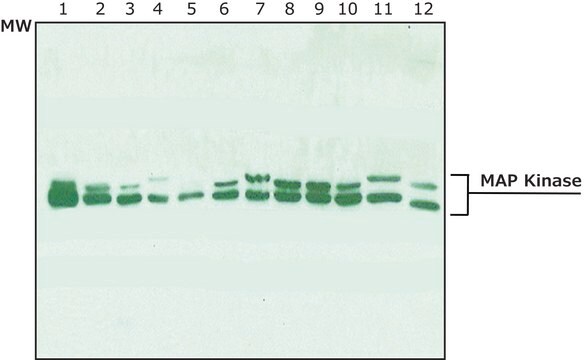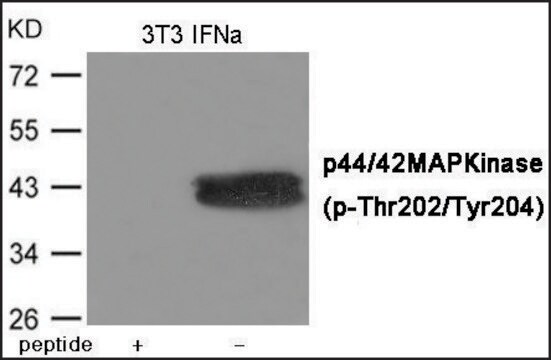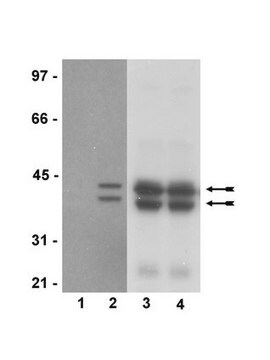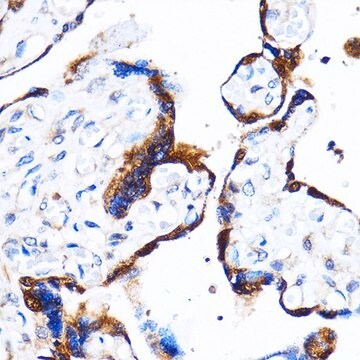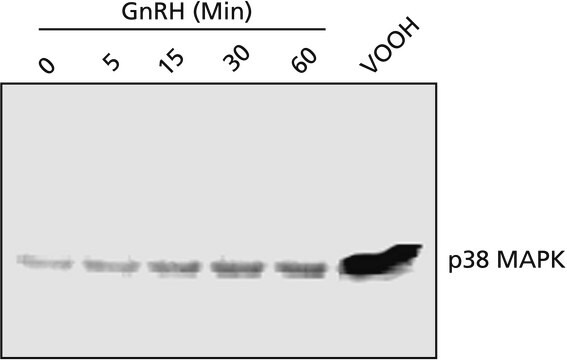SAB4200176
Anti-JNK antibody, Mouse monoclonal
clone 1C2, purified from hybridoma cell culture
Synonym(s):
Anti-JNK-46, Anti-JNK1, Anti-JNK1A2, Anti-JNK21B1/2, Anti-JUN N-terminal kinase, Anti-MAP kinase 8, Anti-MAPK8, Anti-PRKM8, Anti-SAPK1, Anti-stress-activated protein kinase 1
About This Item
Recommended Products
biological source
mouse
conjugate
unconjugated
antibody form
purified immunoglobulin
antibody product type
primary antibodies
clone
1C2, monoclonal
mol wt
antigen ~43 kDa
species reactivity
mouse, rat, human
concentration
~1.0 mg/mL
technique(s)
western blot: 1-2 μg/mL using using whole extracts of mouse NIH-3T3 cells
isotype
IgG2a
UniProt accession no.
shipped in
dry ice
storage temp.
−20°C
target post-translational modification
unmodified
Gene Information
human ... MAPK8(5599)
mouse ... Mapk8(26419)
rat ... Mapk8(116554)
General description
Application
Biochem/physiol Actions
Monoclonal Anti-JNK antibody is specific for human, mouse and rat JNK1 (43 kDa) and/or JNK2 (55 kDa).
Physical form
Disclaimer
Not finding the right product?
Try our Product Selector Tool.
Storage Class Code
10 - Combustible liquids
Flash Point(F)
Not applicable
Flash Point(C)
Not applicable
Choose from one of the most recent versions:
Certificates of Analysis (COA)
Don't see the Right Version?
If you require a particular version, you can look up a specific certificate by the Lot or Batch number.
Already Own This Product?
Find documentation for the products that you have recently purchased in the Document Library.
Customers Also Viewed
Our team of scientists has experience in all areas of research including Life Science, Material Science, Chemical Synthesis, Chromatography, Analytical and many others.
Contact Technical Service